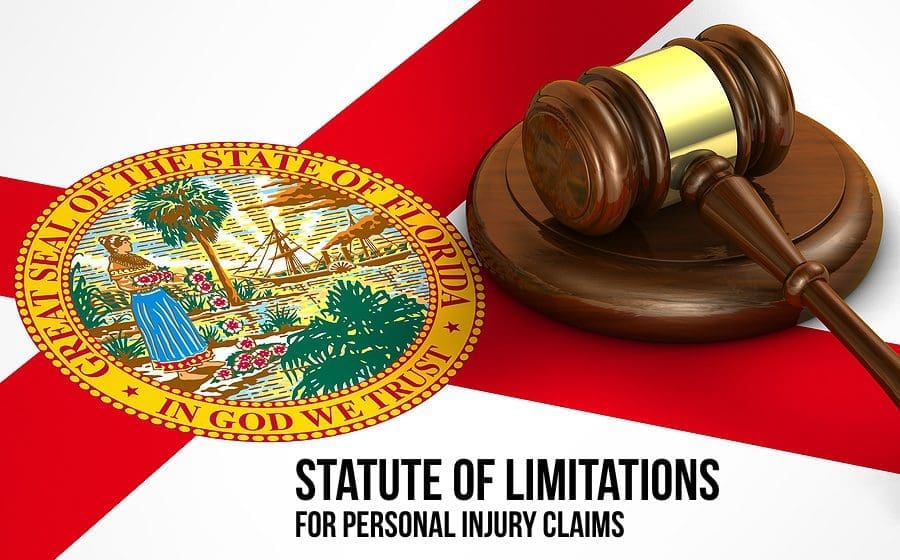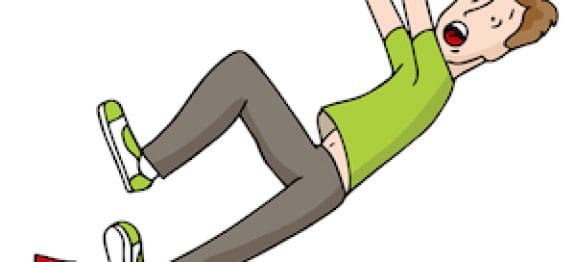JONES LAW GROUPYour Lawyers for Life! Personal Injury Law Firm in St. Petersburg

By: Heath C. Murphy + – Personal Injury This is Part V of VI in my Personal Injury Medical Terms Glossary. Over the past three days I have addressed the most common injuries and terms related to the spinal injuries that can be expected to occur as a result of a slip and fall, a […]
Call our personal injury law office directly at (727) 512-9847
At Jones Law Group in St. Petersburg, FL, we would like to hear from you. Contact us for a free personal injury case consultation.
Call our personal injury law office at (727) 512-9847
Get educated on the Florida's personal injury laws and more.
By: Heath C. Murphy + – Personal Injury
This is Part V of VI in my Personal Injury Medical Terms Glossary. Over the past three days I have addressed the most common injuries and terms related to the spinal injuries that can be expected to occur as a result of a slip and fall, a car accident, a motorcycle accident, a bicycle accident or a pedestrian accident. Today I will attempt to provide some definitions that relate to traumatic brain injuries.
Anoxic Brain Injury
An anoxic brain injury occurs when the brain does not receive any oxygen. Drowning, electrical shock, choking, strokes, heart attacks, toxins, disease and extremely high altitudes can cause anoxia. The long term prognosis is entirely dependent time which the brain has been deprived of oxygen.
Brain Contusion
Brain contusions are traumatic brain injuries that are usually caused by a blow to the head, such as those that could be expected to occur as a result of a slip and fall, a car accident, a motorcycle accident, a bicycle accident or a pedestrian accident. Brain contusions result when the brain slams against the sharp ridges on the interior of the skull which results in a bruise to the brain tissue.
Closed Head Brain Injury
A closed head brain injury is a traumatic brain injury caused by a blow to the head or a violent motion which causes the brain to slam against the inside of the skull. Closed head brain injuries can be classified as focal, meaning the damage is limited to one discrete area of the brain, or diffuse, meaning that they affect brain cells and tissues throughout the brain. Prognosis for a closed head brain injury is dependent on the severity of the injury.
Concussion
A concussion is a traumatic brain injury. Concussions alter the manner in which the brain functions. These alterations are sometimes temporary, but recent studies have shown that concussions can cause permanent brain damage and emotional issues. A concussion is usually caused by blow to the head, but can also be caused by a violent shaking of the head and upper body. Whiplash type injuries suffered in a rear end car collision have been known to be accompanied by concussion symptoms.
Depressed Skull Fracture
A compound fracture involves a break in, or loss of, skin and splintering of the bone.
Coup-Contrecoup
Coup-Contrecoup is a traumatic brain injury. It is essentially a brain contusion that has brain bruising both at the site of the impact and on the complete opposite side of the brain.
Depressed Skull Fracture
A depressed skull fracture is a break in a cranial bone (or “crushed” portion of skull) with depression of the bone in toward the brain. A skull fracture will be accompanied by a concussion or other more serious injuries to the brain.
Diffuse Axonal Injury
A diffuse axonal injury occurs when the brain moves inside the skull tearing nerves and other brain structures. The easiest situation in which to imagine a diffuse axonal injury is shaken baby syndrome. However, diffuse axonal injuries can be caused by a car accident. The long term prognosis of a person suffering a diffuse axonal injury depends upon the area of the brain affected. Permanent impairments are to be expected.
Glasgow Coma Scale
The Glasgow Coma Scale is a testing tool used by medical professionals to evaluate the seriousness of traumatic brain injuries. The medical professionals evaluate the level of consciousness on a scale of 3 to 15. The doctor will chart how each patient responds to stimuli using the Glasgow Coma Scale. A score of 3 is profoundly unconscious, while 15 is normal.
Jones Law Group
Have you or a loved one been injured in an accident? Contact an experienced St. Petersburg personal injury law firm today. When you contact our office we will immediately set an appointment where you will meet your attorney and be provided with his/her personal contact information. If you do not have transportation or you cannot drive, your attorney will travel to meet you and discuss your case with you.
If you or a loved one has been injured as a result of a slip and fall, a car accident, a motorcycle accident, a bicycle accident or a pedestrian accident, you should immediately call an experienced personal injury attorney in St. Petersburg at Jones Law Group at (727) 571-1333 during regular business hours or (727) 753-8657 on weekends or after regular business hours. We will evaluate your case for free and you will never pay us a dime unless we recover compensation for your injuries.
Jones Law Group
5622 Central Avenue
St. Pete, FL 33707

Experts estimate that work-related injuries across the U.S. cost $47.4 billion in lost wages in 2021. Seeing how workplace accidents are just a fraction of all types of accidents that cause severe injuries, you can easily see how vital compensation for lost wages is. Personal injuries can lead to physical, emotional, and financial suffering. The […]

When it comes to going after compensation for a personal injury, no one wants to wait longer than necessary. But the reality is it could end up on the back burner while you’re juggling treatment and your everyday life. Or it may have taken weeks or months to realize the extent of your injuries. While […]
Pedestrian Safety Issues in St. Petersburg St. Petersburg is a city in which there are a lot of pedestrians. We are blessed with an urban environment in which walking is practical and convenient. Pinellas County is also home to miles of pristine beaches that are lined by hundreds of resorts and hotels. This tourist haven […]

Slip and fall accidents are among the most common cause of injuries every year. Everybody has slipped and fallen, at one time or another. Most of the time the injury is nothing more than a bruised sense of pride and some embarrassment. However, slip and fall accidents can occasionally cause a variety of serious injuries. […]

Blunt force trauma in a car accident can have long-term health consequences, so it’s important to identify and treat these injuries quickly. Summary Experiencing a motor vehicle accident can be a life-altering event, often resulting in various injuries, including blunt force trauma. Recognizing the symptoms of this type of injury is crucial for ensuring timely […]

Self-driving trucks, or autonomous trucks, have been a hot topic in the transportation industry for several years. The technology behind self-driving trucks has been rapidly evolving, and many companies have been testing and deploying them on roads worldwide. Imagine the possibilities autonomous trucks could offer. No longer would fatigued or impaired human drivers cause devastating […]
Speak with us before time runs out! In Florida, you have a limited window to file a personal injury case, so speak to an Attorney today.
Call our personal injury law office directly at (727) 512-9847
Jones Law Group is a dedicated personal injury lawyer in St. Petersburg, FL, serving the Tampa Bay area since 2006. Our experienced attorneys specialize in car accidents, slip and fall cases, employment law disputes, construction law issues, and overtime wage claims, fighting for maximum compensation on a contingency fee basis. Contact us for a free consultation to discuss your case.
Call our personal injury law office at (727) 512-9847
© Copyright 2006–2025 Jones Law Group Attorneys at Law. All rights reserved. Privacy Policy Terms of Use
Attorney Advertising.
The information on this website is for general information purposes only. Nothing on this site should be taken as legal advice for any individual case or situation. This information is not intended to create, and receipt or viewing does not constitute, an attorney-client relationship. Past results do not guarantee similar outcomes.
Are you injured or wronged and interested in a consultation? Fill out the form for a free consultation with us.